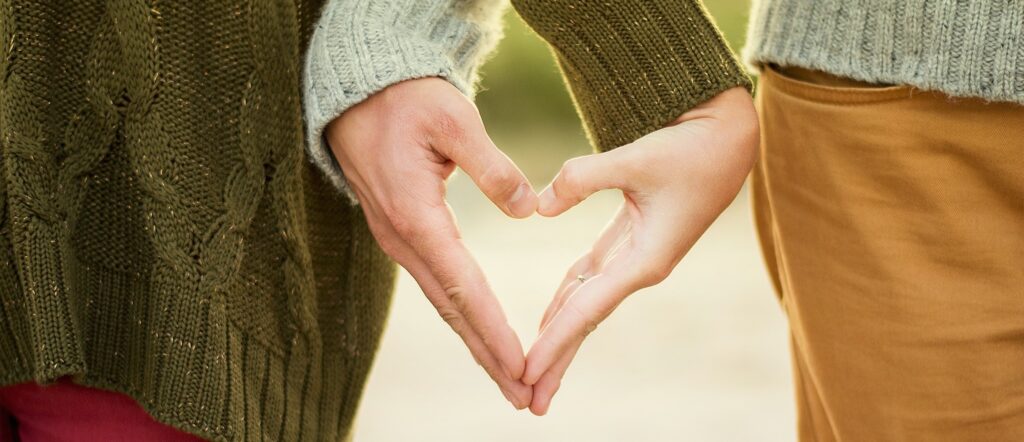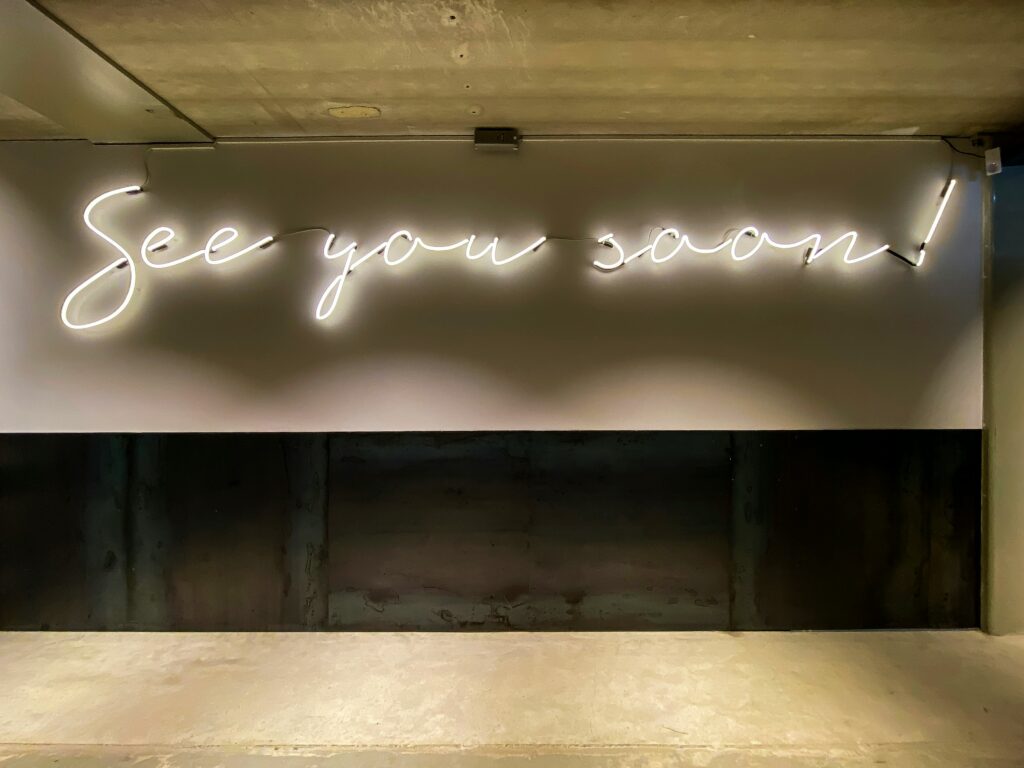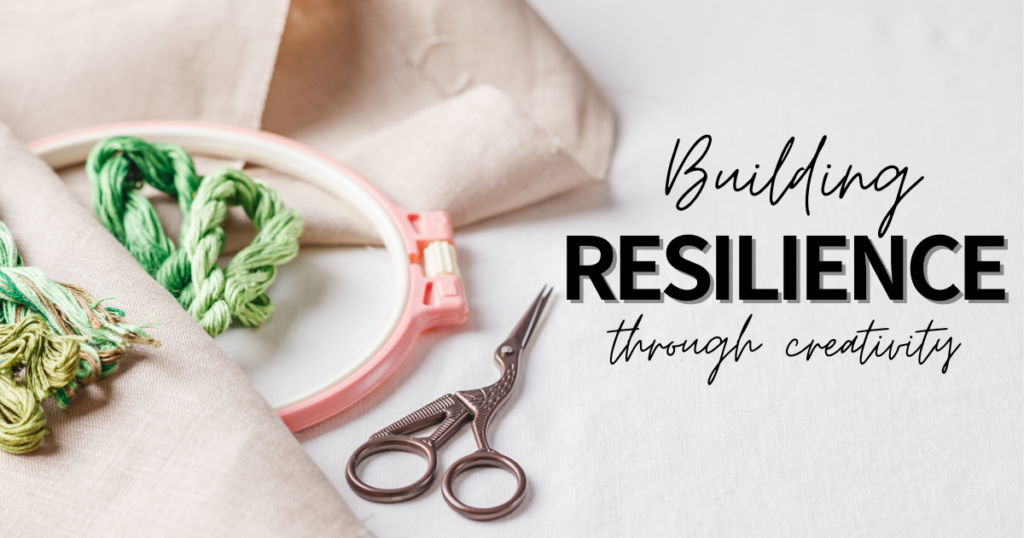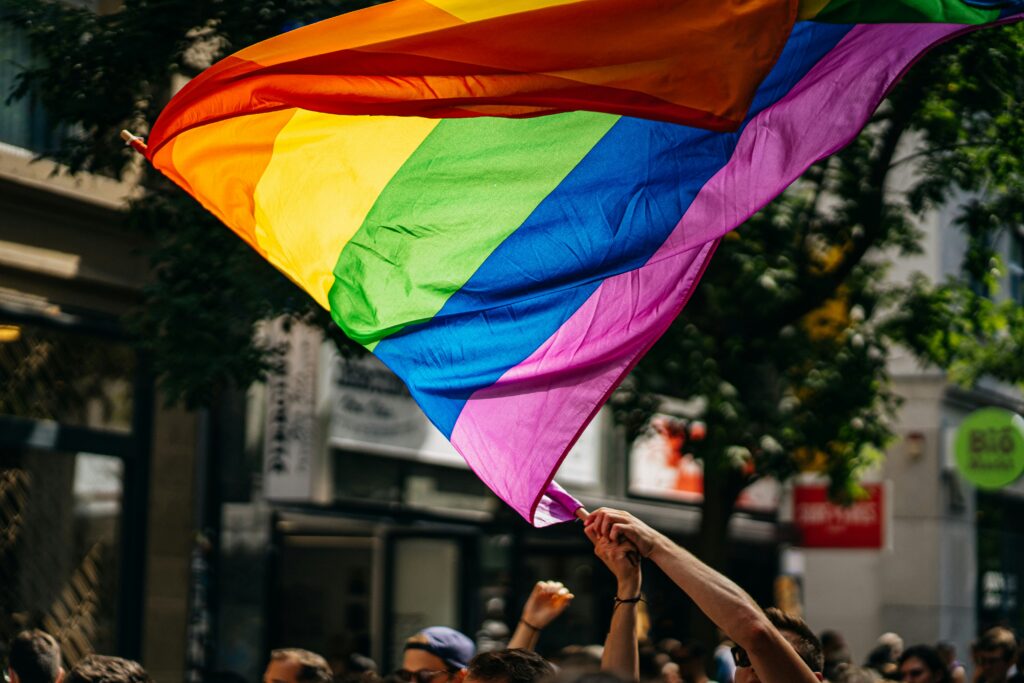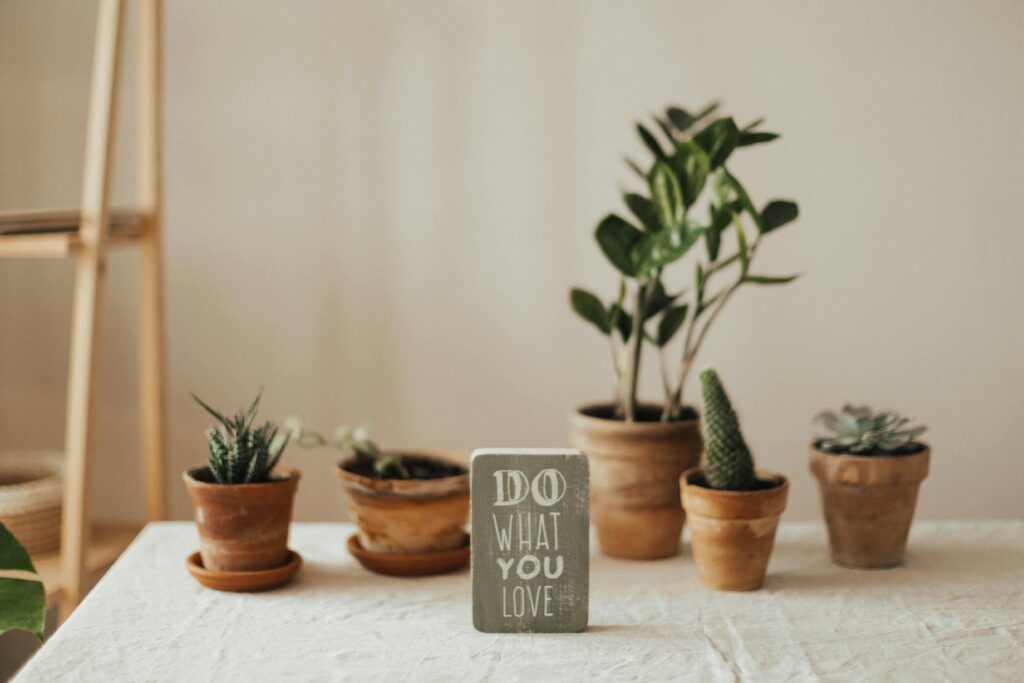In honor of National Caregiver Month in November, we will be highlighting the amazing caregivers in our community and beyond. We are so excited to introduce Sara Godby, a member of The Negative Space community. Read on for more about Sara and her story.
Please introduce yourself! What’s your name, what are your pronouns, and where are you located?
Hi, my name is Sara Godby. My pronouns are she/her. I live in Phoenix, Arizona with my husband Desmond and our Labrador Bailey.
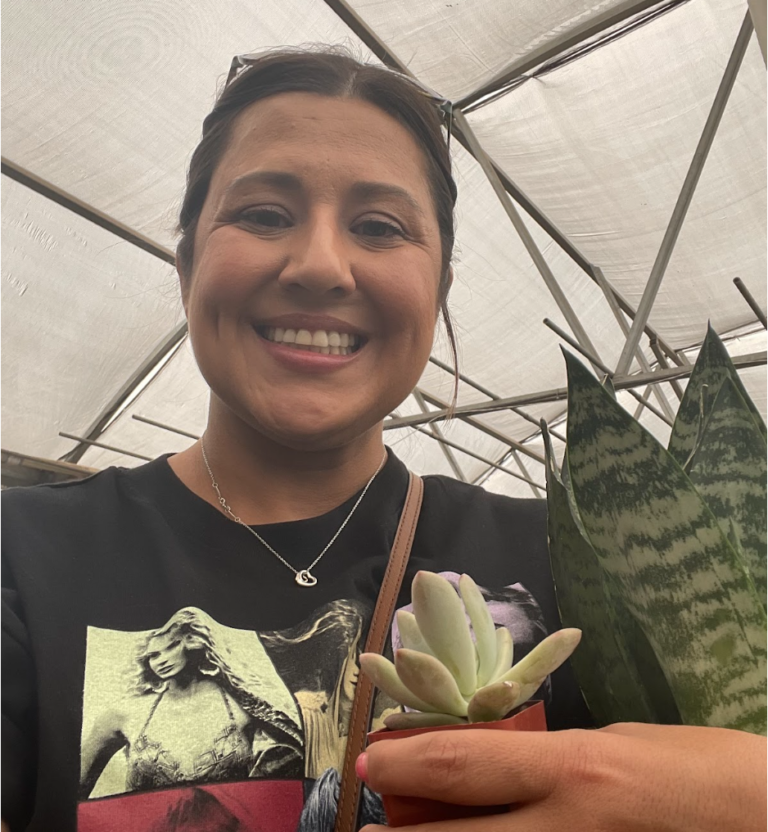
How did you meet your husband?
My husband and I met at church. I saw him across the way and I thought, wow a single guy in his twenties at CHURCH and I knew I had to meet him. Little did I know that he worked for an investment company that got its clients through the church… and once he changed jobs, he has never been to church again. But… I was already hooked by the time I learned his true motive for being there. Ha.
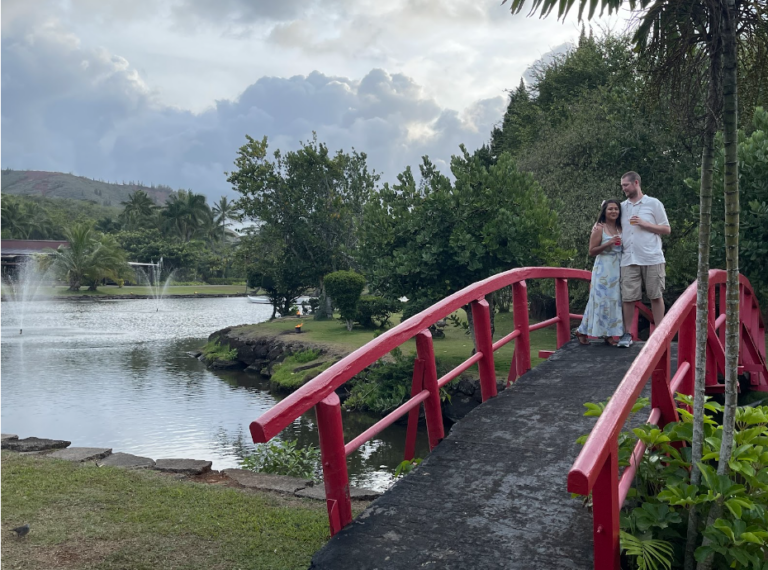
Can you tell us a bit about his diagnosis?
In late February 2018 we learned that my husband had a very large brain tumor. Our neurosurgeon told us that it would take one surgery to remove and maybe 6-8 weeks of recovery. Oh, I wish it was that simple. The tumor ended up being resected in two surgeries, and the tumor at its largest width was nearly the size of a baseball. He was diagnosed with a grade 2 Astrocytoma. Yet, the surgeries caused a whole lot of other problems. His optic nerve was cut during the first surgery so he lost all vision out of both eyes on the right side, known as a field cut. He also has nerve pain and sensory problems on the whole right side of his body. Furthermore, he has aphasia as a result of the tumor location, memory loss, and language processing issues (for example he struggles to know where a five is in the number sequence without counting up to it).
Caregivers are so often left out of conversations and considerations. Have you been able to find any community with other caregivers, and if so when and how?
The first few years after diagnosis I would definitely say no. Being young (he was 35 at the time of diagnosis and I was 32), any support group we came across were typically full of people in their 60s, 70s, and beyond since brain tumors more commonly impact those ages. More recently I’ve found community through podcasts such as In Sickness by Allison Breininger and Justin Bajema and another’s specifically related to brain tumors such as Glioblastoma aka GBM and Game on Glio and Rare Enough. Although those aren’t people that I’ve connected with in person, hearing stories from those in similar situations has been a huge motivation for me and given me a missed piece of community.
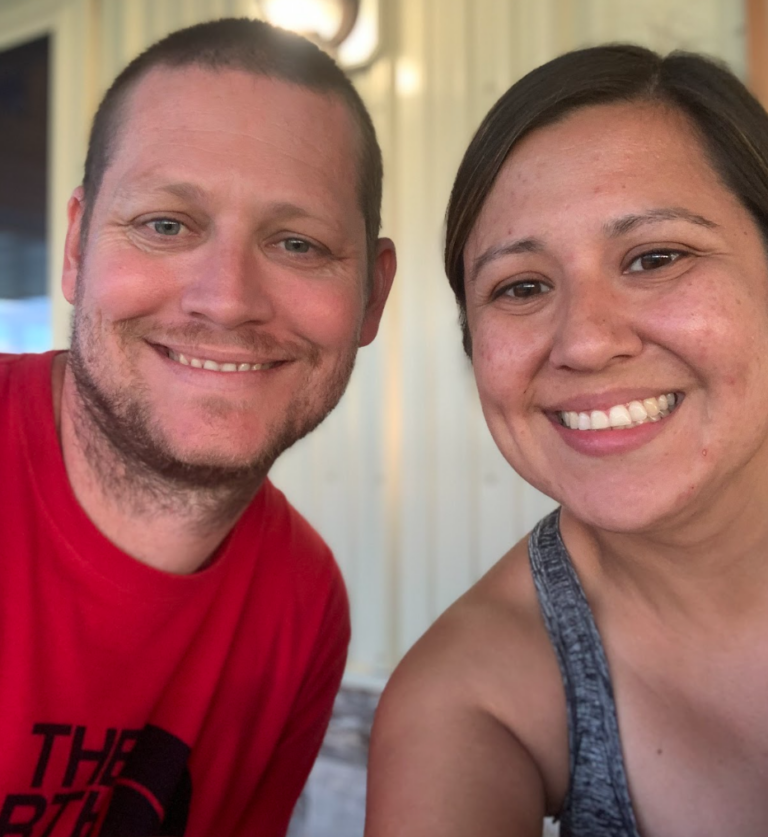
How do you find or make space for yourself in the most challenging caregiving moments? What are some strategies that work for you?
In the most challenging times, I honestly really struggled. I ended up needing the support of anxiety medicine just to sleep. But once we made it through the worst days, I started journaling. I found a three sentence a day journal, it felt like just the right amount of mental effort I could put in. I would wake up early, journal my thoughts and then read something motivational/inspirational such as a quote book, devotional book, or poems. I also tried to learn to meditate, but I would just fall asleep and wake up with our dog licking my face. I’m a meditation failure, but an excellent sleeper.
What advice would you give to folks that are new to their role as caregivers?
I would tell new caregivers to not be afraid of finding your voice. Doctors and nurses are wonderful amazing people, but they see a million patients a day. Be courageous enough to advocate for what your person needs, because you are the one who knows your person the best. Don’t be afraid to be the squeaky wheel, it’s the one that gets the attention right? Don’t you want your person getting the attention they deserve?
Secondly, I would say, put everything for the medical costs on one rewards credit card. This is helpful for two reasons, firstly it helps you know how much you’ve spent over the year(s) for medical expenses which helps you easily track copays, deductibles, etc. Secondly, the rewards you earn can be later used for a get away or a treat for yourself. 🙂
Lastly, I would say… do not listen to people who tell you that this is a marathon and not a sprint. We spent years waiting for our life to go back to normal. We paced ourselves, and did everything we were told would get our lives back. We knew we were fighting an uphill battle, but we also kept thinking… we were told 6 to 8 weeks to go back to normal, normal must be coming soon. I grew up as a runner, and the thing you know when running any race no matter the distance is that it eventually ends. I wish we would have thought of this cancer diagnosis as a whole new journey and not a long race. There has been so little end to what we are experiencing. This is not to say that it’s all hard, honestly, life is still wonderful and special despite all the challenges… but it’s not the life we planned. Once we stopped waiting for the crazy adventure we were on to end, and learned to embrace what we have as our new normal, I think we were both more at peace with the 180 our life had taken. From that point on, we could be truly thankful for all that we do have and not mourn so strongly for all that we didn’t have anymore.
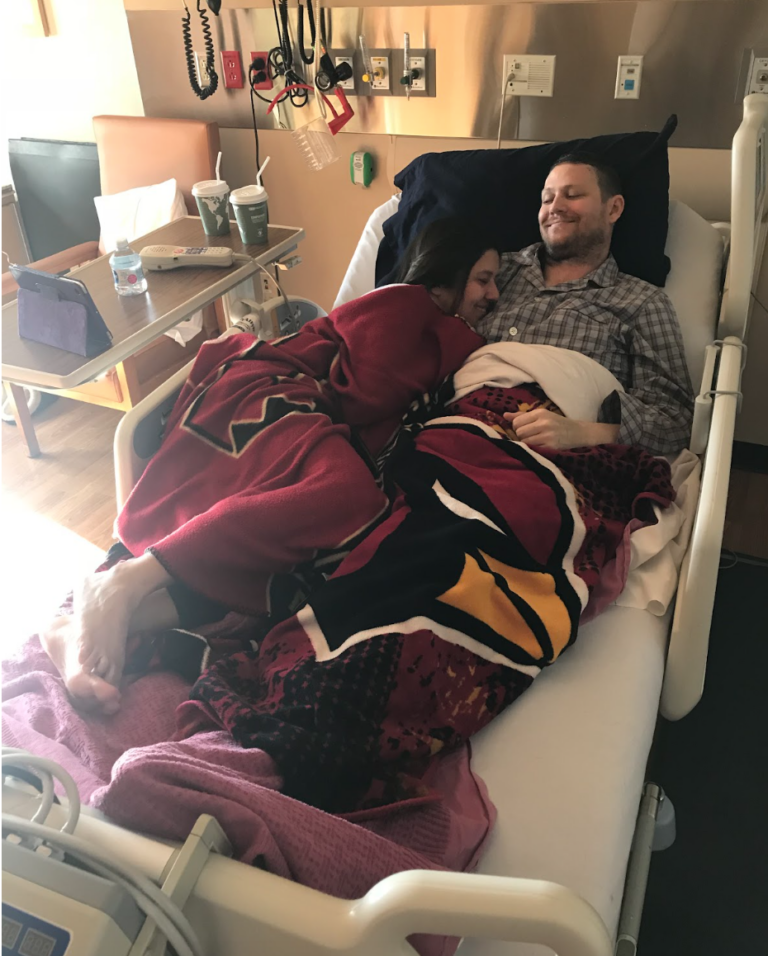
Can you tell us about a time as a caregiver that you felt seen, understood, and/or really supported?
I struggle to ask for help, it’s just who I am. I’m an enneagram 2, the caregiver. I learned I couldn’t do it all. Our general practitioner, a wonderful kind man, arranged for us to have a care coordinator. I initially turned down this service, I could do it all, right? But I couldn’t do it all. I was struggling. Since we’ve had our care coordinator, I feel so supported. There is someone to call when I need something done quickly. There is someone who can call and fight and light a fire under specialists or schedule our appointments when I’m at work. I love Lindsay, and I feel so supported by her. I think everyone needs Lindsay in their corner! She’s a gift.
If someone were to visit your area, what are your favorite spots you’d recommend?
Wait, people go out? Ha! Sometimes I forget that! Hah. We love home. I love home. My favorite spots in Arizona are anyplace that has an Arizona sports team! We love Chase Field. Go Diamondbacks! We love Cardinals Stadium… we’ll get better next year!
We also love any trails around the valley, especially in this amazing fall weather that is finally arriving. Current favorite is the Desert Vista Trailhead. If we are going out of town and up north, then definitely West Fork Trail.
I also love to go out to eat! In Arizona Mexican food is king. Our two favorites are Valle Luna and Top Shelf.
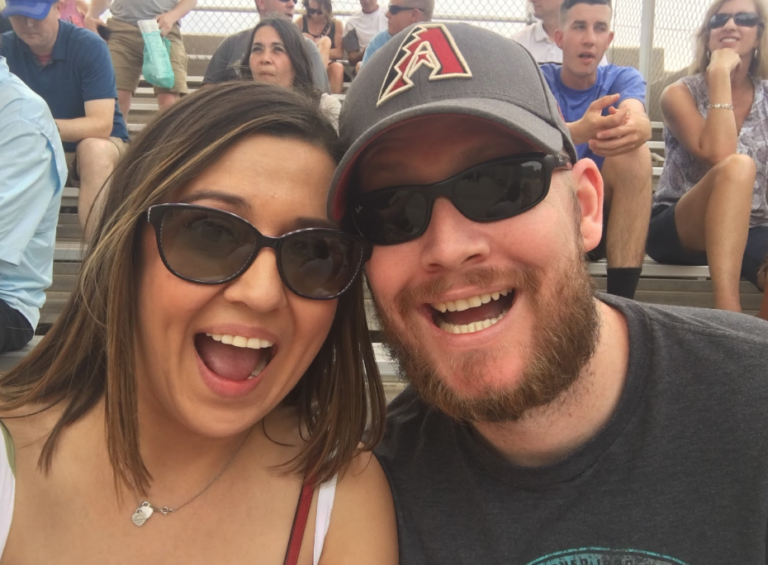
Shamelessly brag about one thing you’re really proud of.
I’m really proud of how this brain tumor changed me for the better. I used to be really shy around new people. I used to only be open to talk to friends, but this tumor showed me that you never know who is suffering with something that no one talks about. I hate to admit it but I used to be quick to judge. This tumor has changed that part of me so much. I will chat with anyone now. If I can make someone smile with a two second chat, I get so fulfilled. Honestly, I tell my husband all the time I don’t recognize myself anymore in this regard. I am so proud of how this tumor made me see people, and engage with people. I’m no longer afraid to tell a stranger I love something about them, or strike up a conversation with someone. I’m so proud of how I grew to be this new person instead of allowing this diagnosis to make me dark and depressed. I love how I see people with a story, with struggles and joy and they just need someone to help open them up. I try to never judge because with a husband who “looks normal” I’ve learned that just because someone looks a certain way, doesn’t mean you know anything about them. I am so proud and thankful for these changes.
What’s the best piece of advice anyone has ever given you?
Hmmm, this is a hard one and the question I have struggled the most with. How about the best advice I didn’t listen to? Doctors always tell you when your loved one first gets a diagnosis to not Google! I say, go Google crazy. Knowledge is power. If you have a doctor who isn’t open to you asking questions about what you’ve read, get a new doctor. Google has helped me learn what questions to ask, guided me to research, and overall helped me know what to do next… and then put that together to get the whole picture. Of course our doctors are the experts, but combine what they know with what you find. Ask questions and put it all together.
Also, wear sunscreen. Just do it.
Thank you so much for chatting with us, Sara! Tune in all this month to learn from Sara and the other rockstar caregivers in our community.


